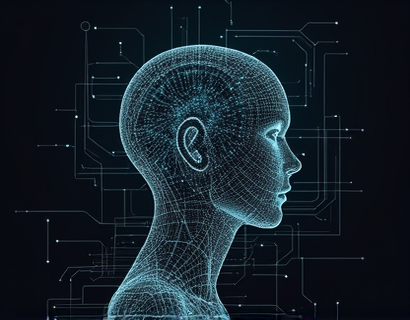AI-Powered Task Management: Transforming Personal and Professional Productivity
In the fast-paced world of today, managing tasks efficiently is crucial for both personal and professional success. The integration of Artificial Intelligence (AI) into task management systems represents a significant leap forward, offering intelligent solutions that streamline workflows and enhance productivity. This article delves into the transformative power of AI-powered task management, exploring how intelligent agents can redefine how we handle daily tasks, from simple reminders to complex project management.
Understanding AI-Powered Task Management
AI-powered task management involves the use of advanced algorithms and machine learning to automate and optimize the process of managing tasks. These systems can learn from user behavior, adapt to changing priorities, and predict future tasks based on historical data. The core idea is to create a seamless integration between technology and human workflow, ensuring that users can focus on high-value activities while the AI handles the mundane and repetitive tasks.
Key Features of AI Task Management Systems
AI task management systems come equipped with a range of features designed to enhance productivity and efficiency. Some of the most notable features include:
- Automated Task Creation: AI can analyze emails, calendars, and other digital communications to identify and create tasks automatically.
- Prioritization: By assessing the urgency and importance of tasks, AI can prioritize them, ensuring that critical tasks are addressed first.
- Predictive Scheduling: AI can predict the best times to schedule tasks based on user availability and historical performance data.
- Real-time Updates: AI systems can update task statuses in real-time, providing immediate feedback and adjustments as needed.
- Collaboration Tools: AI can facilitate team collaboration by suggesting optimal task assignments and tracking progress collectively.
Benefits for Personal Productivity
For individuals, AI-powered task management offers numerous benefits that can significantly enhance personal productivity. By offloading routine tasks to intelligent agents, users can free up mental bandwidth to focus on more important aspects of life. Here are some specific advantages:
Firstly, AI helps in maintaining organization. With tasks automatically created and prioritized, individuals can maintain a well-structured to-do list without the effort of manual management. This reduces the cognitive load and minimizes the risk of forgetting important tasks.
Secondly, AI enhances time management. By predicting optimal times for task execution and suggesting breaks, AI ensures that users work efficiently without burnout. This balanced approach to time management leads to higher overall productivity and better work-life balance.
Lastly, AI-powered systems provide insights into personal productivity patterns. Through data analysis, users can identify their most productive hours, common time-wasters, and areas for improvement. This knowledge empowers individuals to make informed decisions and adopt habits that boost their productivity.
Advantages for Professional Productivity
In a professional setting, the benefits of AI task management are equally profound. Businesses can leverage these intelligent systems to streamline operations, improve team collaboration, and drive project success. Key advantages include:
First, AI enhances project management by providing comprehensive oversight and control. Project managers can delegate tasks, set deadlines, and monitor progress all within an integrated AI system. This centralization ensures that everyone is on the same page and that projects stay on track.
Second, AI facilitates better resource allocation. By analyzing team performance and availability, AI can suggest the most efficient task assignments, ensuring that the right people are working on the right tasks at the right time. This optimization reduces delays and increases overall project efficiency.
Third, AI supports continuous improvement. Through advanced analytics, businesses can identify bottlenecks, assess the effectiveness of workflows, and implement data-driven improvements. This continuous feedback loop leads to sustained productivity gains and competitive advantage.
Integration into Daily Routines
The seamless integration of AI task management into daily routines is one of its most compelling features. These systems are designed to adapt to individual work styles and preferences, ensuring a smooth transition from traditional task management methods. Here’s how integration typically works:
First, users set up their AI task manager by linking various digital tools such as email, calendar, and project management software. The AI then begins to learn the user’s habits and preferences through initial interactions and data analysis.
Next, the AI starts automating routine tasks, such as setting reminders, creating to-do lists, and scheduling meetings. Users can customize the level of automation to suit their needs, from fully automated to manual oversight.
As the AI continues to learn, it refines its suggestions and automations, becoming an increasingly valuable assistant. Users can interact with the AI through natural language commands, making it accessible and user-friendly.
Case Studies and Real-World Applications
To better understand the practical applications of AI task management, let’s explore a few real-world scenarios:
In a marketing agency, the team uses an AI task manager to handle campaign planning. The AI analyzes past campaign data, current trends, and team availability to suggest optimal timelines and task assignments. Project managers can focus on creative strategies while the AI ensures that all logistical tasks are completed on time.
For a software development team, AI helps in managing sprints and agile methodologies. The AI automatically creates tasks based on user stories, prioritizes them based on complexity and deadlines, and assigns them to the most suitable developers. Real-time updates keep everyone informed of progress and any changes.
In personal settings, an individual uses an AI task manager to balance work and family responsibilities. The AI creates a balanced schedule that includes work tasks, family events, and personal time, ensuring that no aspect of life is neglected. Predictive scheduling helps in planning vacations and appointments well in advance, reducing last-minute stress.
Challenges and Considerations
While AI task management offers significant benefits, there are also challenges and considerations to keep in mind:
First, data privacy and security are paramount. Users must ensure that their AI task manager complies with data protection regulations and implements robust security measures to safeguard sensitive information.
Second, the effectiveness of AI depends on the quality of data and user engagement. Users need to provide accurate and comprehensive data for the AI to function optimally. Additionally, regular interaction with the AI is essential for it to learn and adapt effectively.
Third, there is a learning curve associated with adopting AI task management. Users should be prepared to invest time in setting up and customizing the system to suit their specific needs.
Future Trends in AI Task Management
The field of AI task management is rapidly evolving, with several trends shaping its future:
First, the integration of AI with other emerging technologies such as augmented reality (AR) and the Internet of Things (IoT) is expected to create more immersive and intelligent task management experiences. For example, AR could provide visual cues and guidance for complex tasks, while IoT devices can trigger tasks based on real-world events.
Second, the focus on emotional intelligence and user well-being is becoming more prominent. Future AI task managers will not only optimize productivity but also consider the user’s mental state, suggesting breaks and relaxation techniques to prevent burnout.
Third, the development of more intuitive and conversational AI interfaces will make these systems even more user-friendly. Natural language processing advancements will enable more natural and effective interactions between users and AI assistants.
Conclusion
AI-powered task management represents a revolutionary approach to enhancing personal and professional productivity. By automating routine tasks, providing intelligent insights, and adapting to individual needs, these systems empower users to focus on high-priority activities and achieve greater efficiency. As the technology continues to evolve, the potential for even more transformative applications is vast. Embracing AI task management is not just about staying current; it’s about unlocking new levels of productivity and success.











































